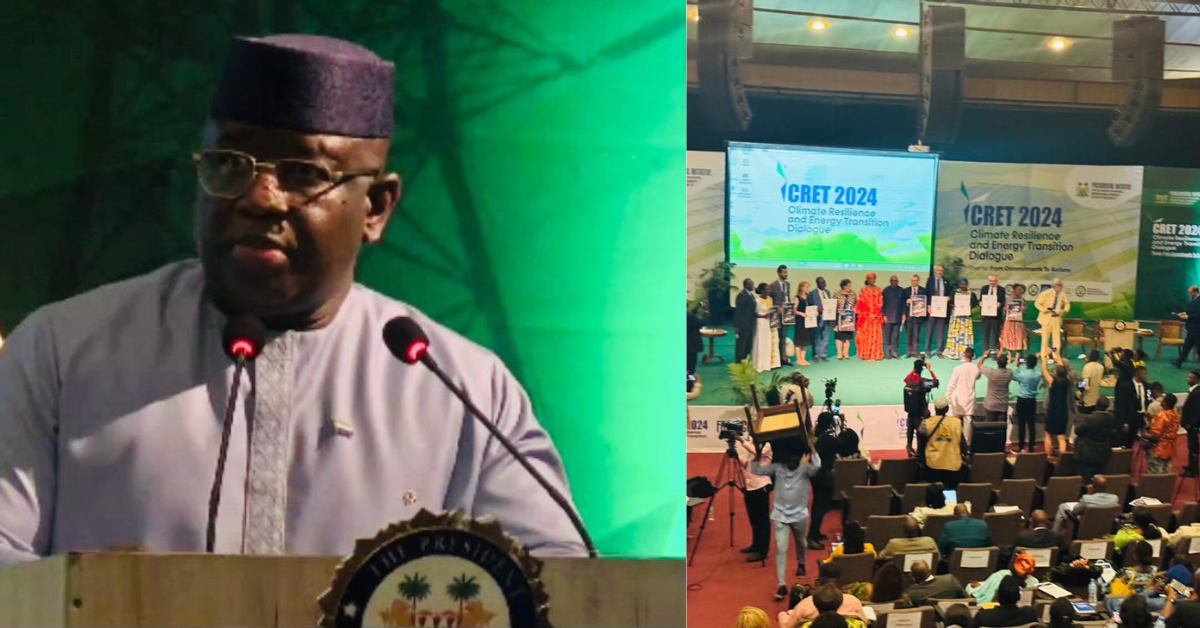At the inaugural National Dialogue on Climate Resilience and Energy Transition, President Julius Maada Bio reaffirmed Sierra Leone’s commitment to renewable energy and climate resilience, highlighting new strides in the country’s energy investment roadmap.
Organized by the Presidential Initiative on Climate Change, Renewable Energy, and Food Security (PI-CREF), the dialogue served as a critical platform for addressing Sierra Leone’s renewable energy challenges and mobilizing international support.
Jointly chaired by Vice President Dr. Mohamed Juldeh Jalloh and Dr. Kandeh Yumkella, Chairman of PI-CREF, the dialogue—held under the theme “From Commitment to Action”—focused on long-term energy investments, climate finance, off-grid energy solutions, and integrating resilience into food systems under the Feed Salone initiative.
In his address, President Bio acknowledged Sierra Leone’s vulnerability to climate change impacts and underscored the urgency of economic reforms to mitigate these effects. “Our response to climate change cannot be separated from access to energy, food security, and economic livelihoods,” Bio said. He also announced the launch of the Just and Inclusive Energy Transition Plan, a framework aimed at supporting the shift to renewable energy and climate-resilient agriculture.
President Bio expressed gratitude to Sierra Leone’s development partners, crediting their support in enabling the country’s transition toward a sustainable energy future. He described the dialogue as a pivotal step in achieving Sierra Leone’s renewable energy goals and addressing systemic issues within the sector.
Deputy Minister of Energy Dr. Eldred Taylor emphasized the challenges plaguing Sierra Leone’s energy infrastructure, noting that limited access to reliable electricity significantly hinders economic growth. “Today, as we come together from different parts of the energy sector and the world, we unite around a common purpose: creating a sustainable, efficient, and inclusive energy future,” Taylor said.
Taylor also highlighted key initiatives, including investments from the Millennium Challenge Corporation (MCC) Compact, World Bank support for the Electricity Distribution and Supply Authority (EDSA), and the recent enactment of the EWRC Act, aimed at reforming the sector. He noted that the dialogue offers stakeholders an essential platform to collaborate on innovative solutions to overcome the energy sector’s hurdles.
The national dialogue reflects Sierra Leone’s escalating commitment to renewable energy and serves as a platform for advancing the government’s climate resilience and economic transformation goals.











